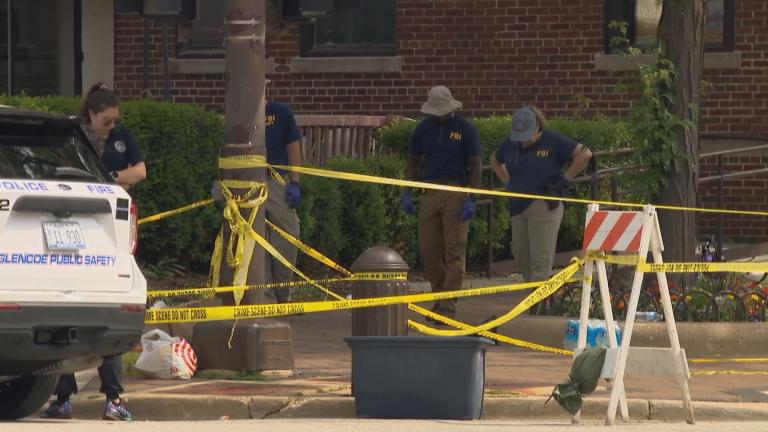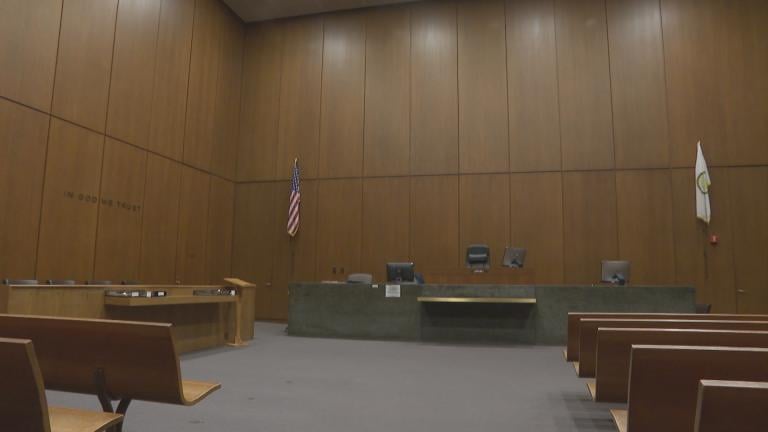As economists and other experts warn of a possible recession, Illinois is preparing to boost its distressed unemployment benefits fund.
Illinois’ Unemployment Insurance Trust Fund, which pays out benefits, has been beleaguered since the pandemic, running up a $4.5 billion deficit when early in the COVID pandemic jobless claims surged.
On Tuesday, leaders announced a bipartisan plan, which also has the backing of business and labor, to eliminate the $1.8 billion remainder of that debt, including paying back an interest-incurring federal loan that had been used to shore up the fund.
State Senate President Don Harmon said the deal is not just about unemployment benefits, it’s a positive for the state’s overall fiscal picture.
“In my brief time as Senate president, what I am most proud of is the steps we’ve taken to restore fiscal stability,” Harmon said.
Buoyed by revenue surpluses, Illinois will plug $1.8 billion into the fund.
Businesses will also pay more in taxes, but less they’d otherwise be on the hook for.
“Illinois employers would have faced crushing tax increases. Following years of disruption and myriad ongoing challenges, it would have been an added burden many employers would have been unable to bear,” said Rob Karr, director of the Illinois Retail Merchants Association, on behalf of a joint employers’ bloc. “Passage of this agreement helps … ease pressure, ensure greater stability in the unemployment insurance systems, and means Illinois employers will face at least $900 million less in taxes over five years than they would have otherwise.”
Meanwhile, those who file for unemployment will see benefits stay level, with no cuts or reductions in how long jobless individuals can receive them.
The package also calls for helping to ensure the fund stays solvent in the future through expanding the taxable wage base paid by employers, which state Sen. Sue Rezin, R-Morris, said “should take us through should we have any downturn in the economy, which will provide stability for businesses in the future, which is incredibly important. And also provide for the worker the ability to know that their benefits will not be cut.”
Rezin said considering the unprecedented situation Illinois was in because of the pandemic, it’s a good deal.
The legislation is set to advance this week during the second half of the veto session ,the final scheduled session of the year.
Lawmakers could also use the time to make changes to the SAFE-T Act before its Pretrial Fairness Act provisions, which eliminate cash bail, take effect in January.
About half of Illinois’ state’s attorneys are suing to prevent the law from taking effect, because they argue it’s flawed.
Asked about it on Tuesday, Gov. J.B. Pritzker expressed some confidence that lawmakers will make changes before they adjourn Thursday.
“It is very important that we address the misunderstandings, the misinformation, that exists about the SAFE-T Act. Changes to the SAFE-T Act would, should, include what the purpose of no cash bail is, making sure that people are not – in counties across Illinois – led to believe that they should be flinging the jail doors open on Jan. 1. That’s not what the legislation says,” Pritzker said. “I’m going to the let the negotiators do the work here and come up with their presentation. We’ve got our people in the room as well, I don’t want to mess with that. But I think there will be a good bill that will be presented.”
Democrats have super-majorities, so they have the numbers to get things done on the SAFE-T Act. However, it’s proving difficult with Republicans and moderate legislators pushing for additional changes, and progressives backing minimal clarifications.
Follow Amanda Vinicky on Twitter: @AmandaVinicky








